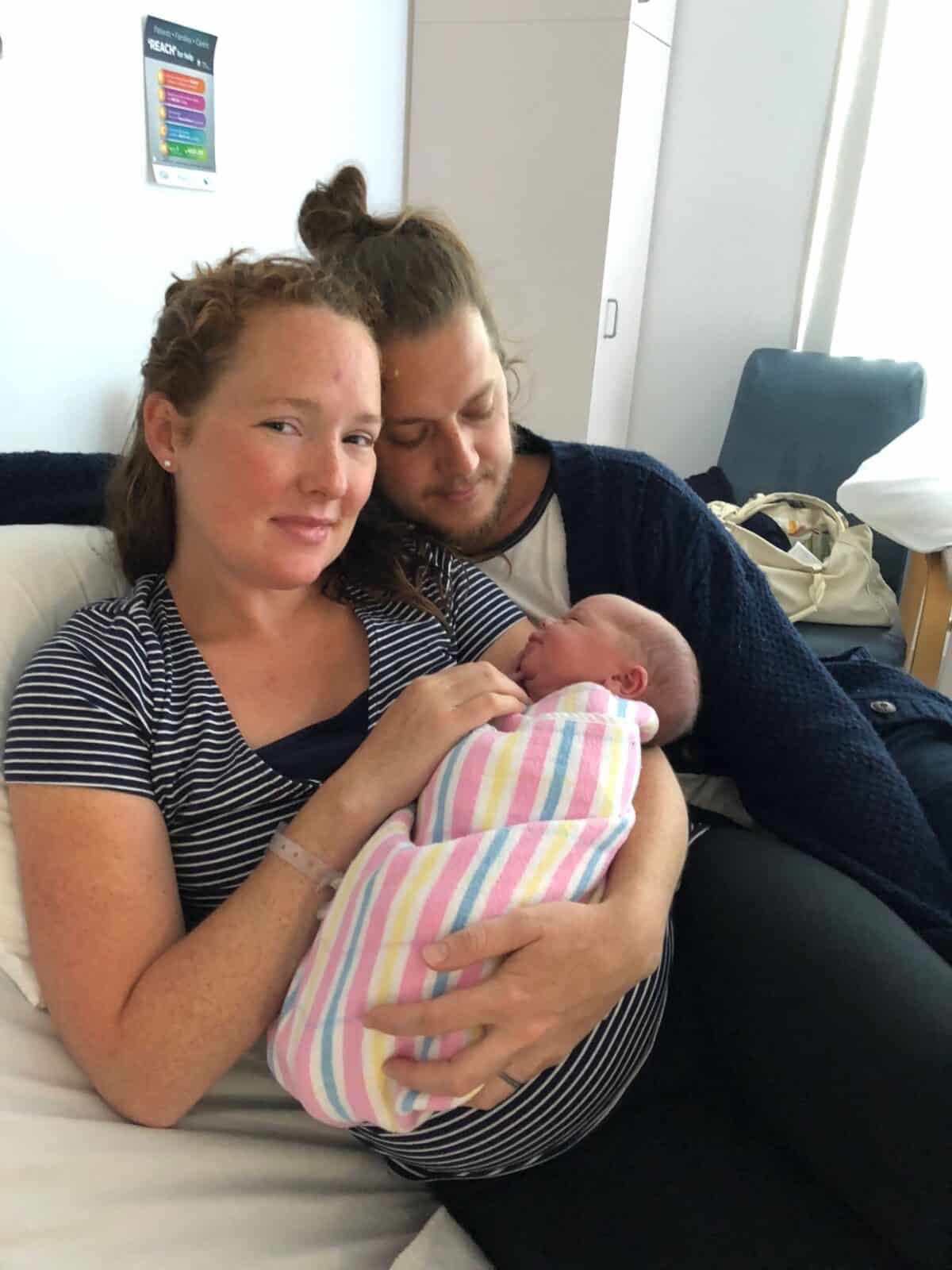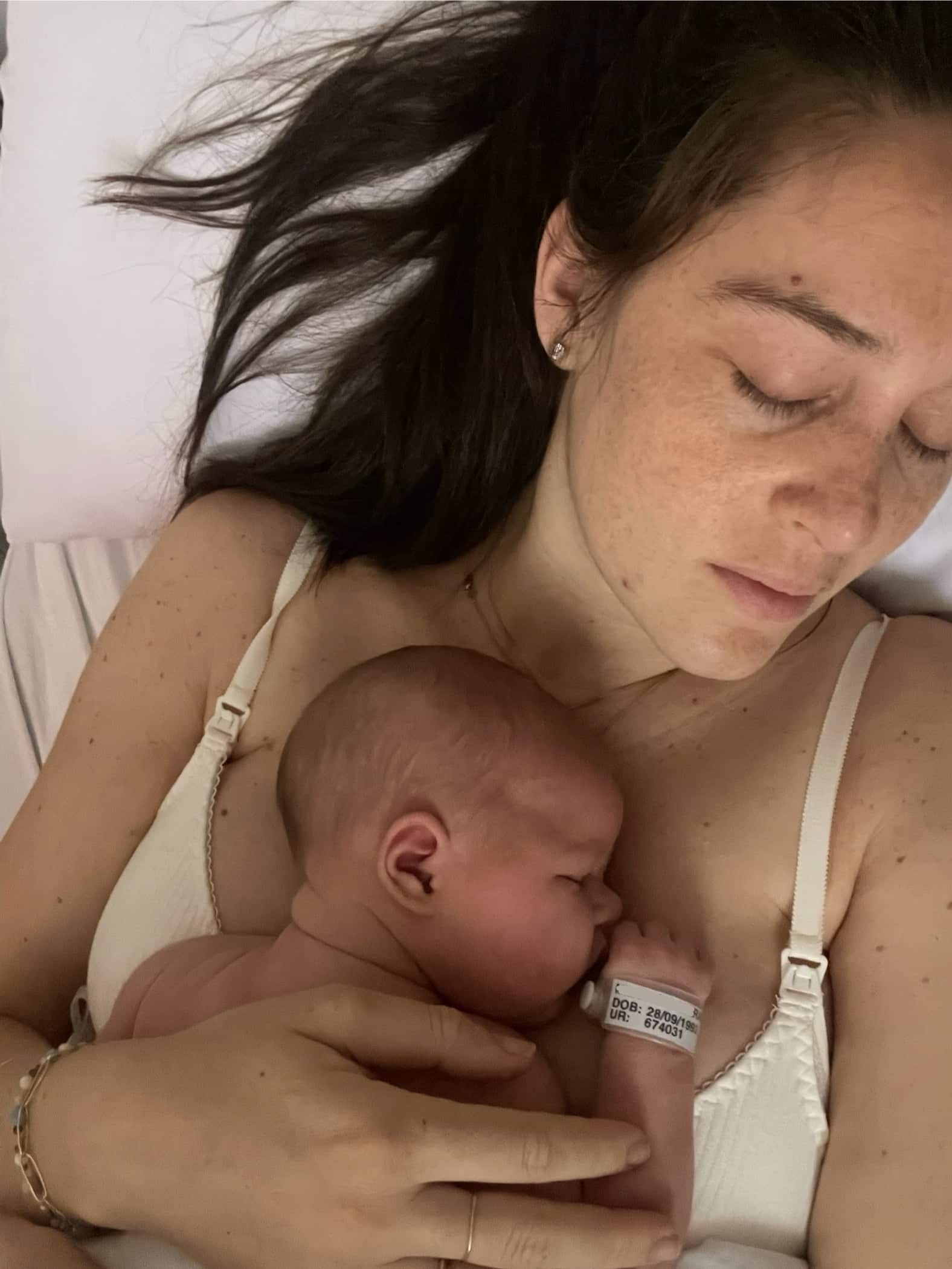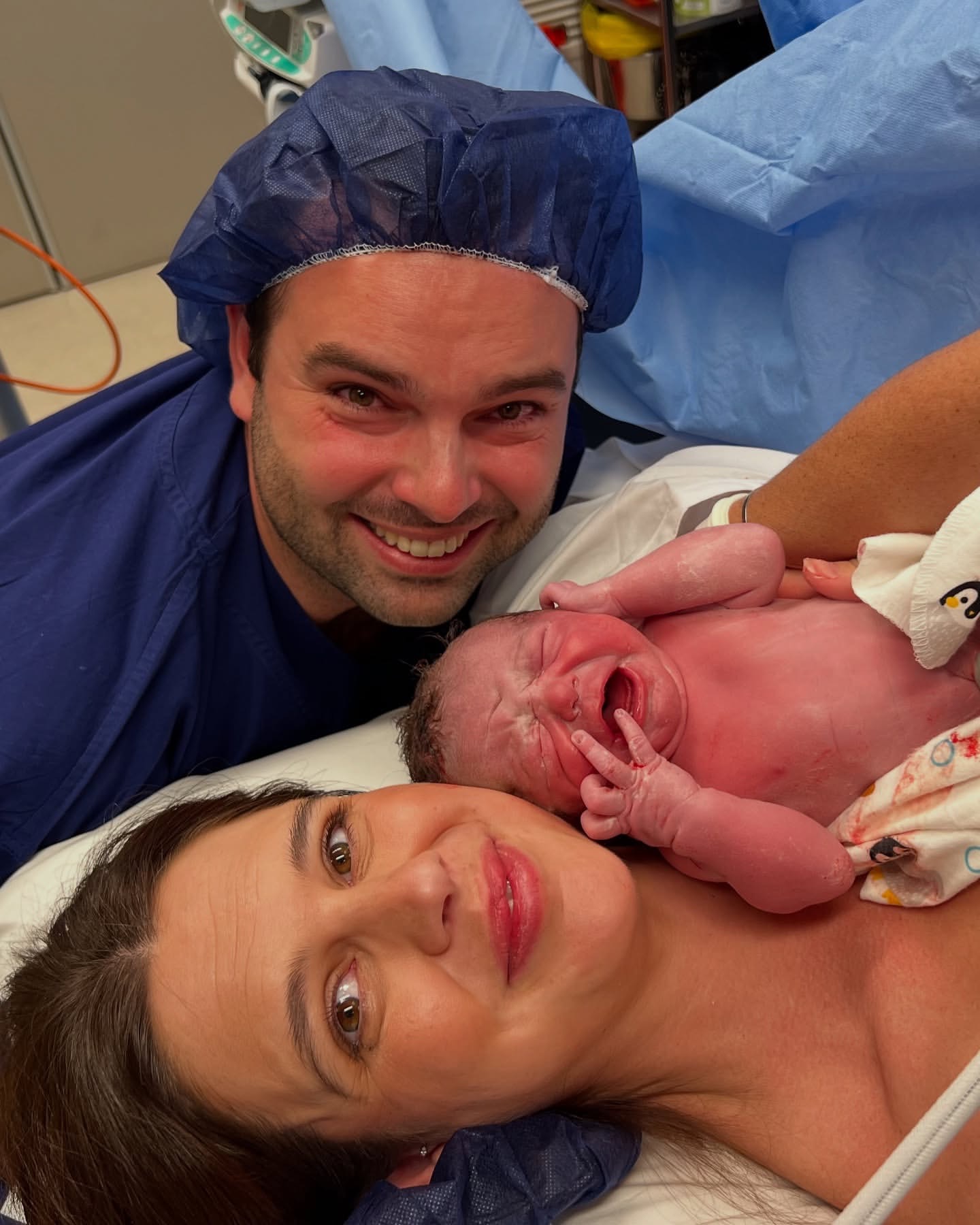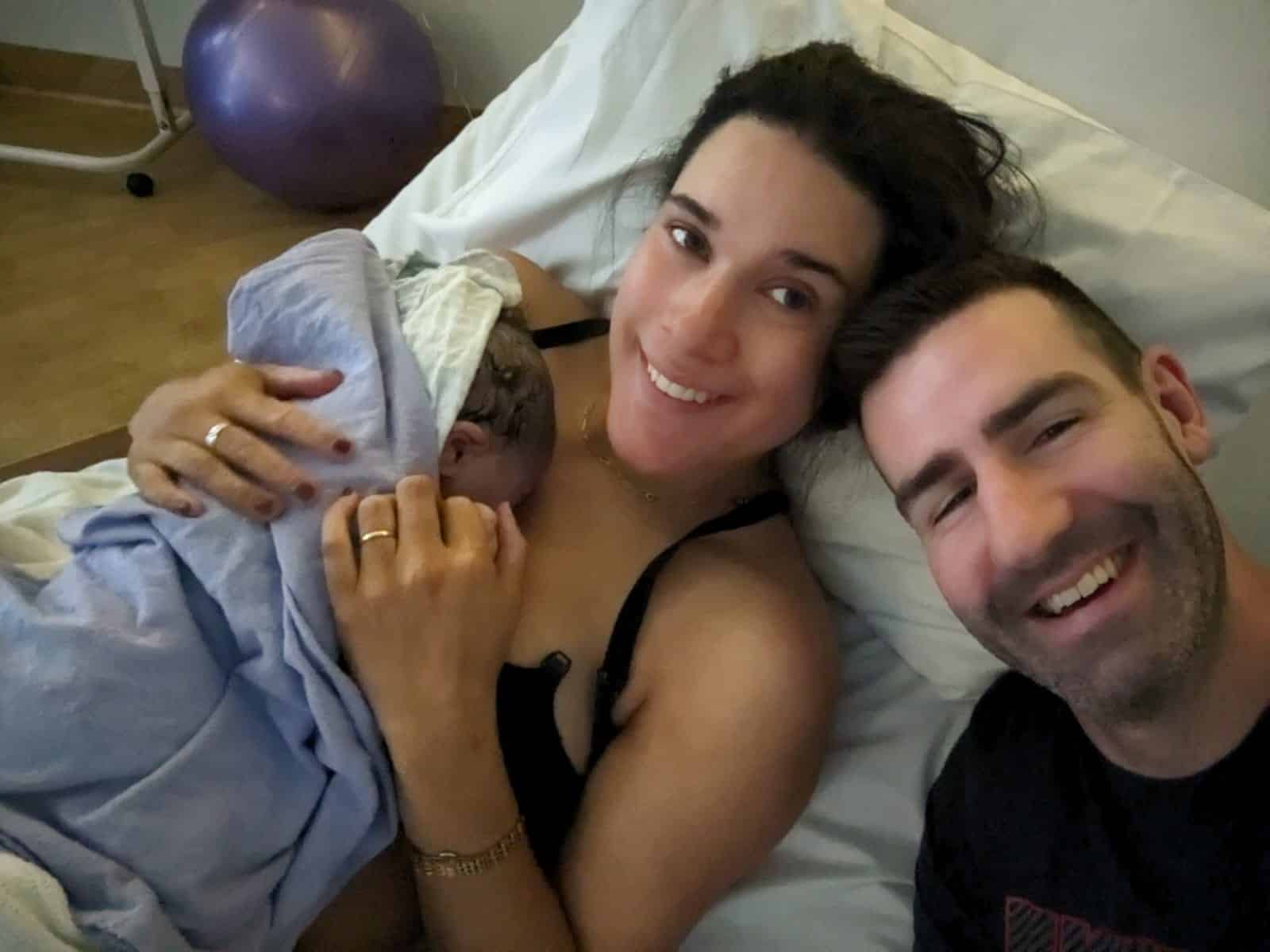Podcasts Ellie | Postpartum – postpartum lethargy, brain fog, postpartum thyroiditis
EPISODE 452
Ellie | Postpartum – postpartum lethargy, brain fog, postpartum thyroiditis

“My family has a history of thyroid issues but I’d never experienced any before pregnancy. After birth I had all the regular symptoms – tiredness, lethargy and I was just trying to work out what the new normal for my body was. I also experienced symptoms that were new to me; my digestion was really slow and I had persistent brain fog; I just didn’t feel my normal self. At six weeks postpartum I went to my GP and initially he just put it down to normal postpartum but I felt in myself that it didn’t feel completely right or normal so I pushed for blood tests.
“I had blood tests for thyroid-stimulating hormone (TSH) and T3 and T4 which and my results were initially high and then low. I went on to have further testing for thyroid antibodies. It’s always nice to have a medical explanation when you feel that something isn’t right.
“I was referred to an endocrinologist and there was a bit of a wait but it was worthwhile to have specialist guidance. My GP held off prescribing medication because he was unsure what medication would be appropriate for breastfeeding.
“Google is great but there’s a lot of information out there that’s not necessarily helpful or beneficial. The endocrinologist explained that pregnancy can affect thyroid function so he diagnosed me with postpartum thyroiditis which is inflammation of the thyroid.
“He did further testing which showed by thyroid antibodies were elevated and he explained it by saying that in pregnancy, the auto-immue system considers the thyroid a foreign object and tries to attack it, destroying some of the thyroid tissue which means there’s less thyroid to produce the hormones so your levels dip.
“Like a lot of medical conditions, it varies person to person. My specialist said that considering my family history I may have it for life or I may need to be on thyroxine for a period of time. Postpartum thyroiditis is considered two years from birth so I was monitored and if my levels normalised, I could wean off the medication but I just had to test every couple of months. I responded within days to the medication which is just a replacement of the hormone.
“I fell pregnant with my second when Pepper was nine months old. After one appointment with my endocrinologist I was able to see my GP throughout pregnancy. They increased my dosage from 50mg to 75mg and that worked for me throughout pregnancy and my diagnosis didn’t restrict my care model at all.
“Overall my headspace and how I was feeling in my body was much better in my second postpartum. I’m still on medication today and now that thyroxine doesn’t need to be refrigerated, it’s made my life much easier. For me, brain fog is always the sign that tells me something might not be right with my thyroid.”

Topics Discussed
brain fog, postpartum lethargy, postpartum thyroiditis
Episode Sponsor
Today’s episode is brought to you by my postpartum course Discovering Motherhood.
This 8 part audio course has been designed to support you through an empowered and confident transition into motherhood.
Categories
Related Products
-
Birth Combs: Harness Your Body’s Natural Pain Relief
$24.95Crafted from smooth, natural wood, our birth combs activate specific pressure points in your hands that trigger your body’s innate pain-relieving responses.
Join the conversation
Sign up to get the latest updates, freebies, podcast releases straight into your inbox
@AustralianBirthStories
Follow along with us
@AustralianBirthStories
Follow along with us
@AustralianBirthStories
Follow along with us
@AustralianBirthStories
Follow along with us
@AustralianBirthStories
Follow along with us
@AustralianBirthStories
Follow along with us
@AustralianBirthStories
Follow along with us
@AustralianBirthStories
Follow along with us
@AustralianBirthStories
Follow along with us
@AustralianBirthStories
Follow along with us
@AustralianBirthStories
Follow along with us
@AustralianBirthStories
Follow along with us






